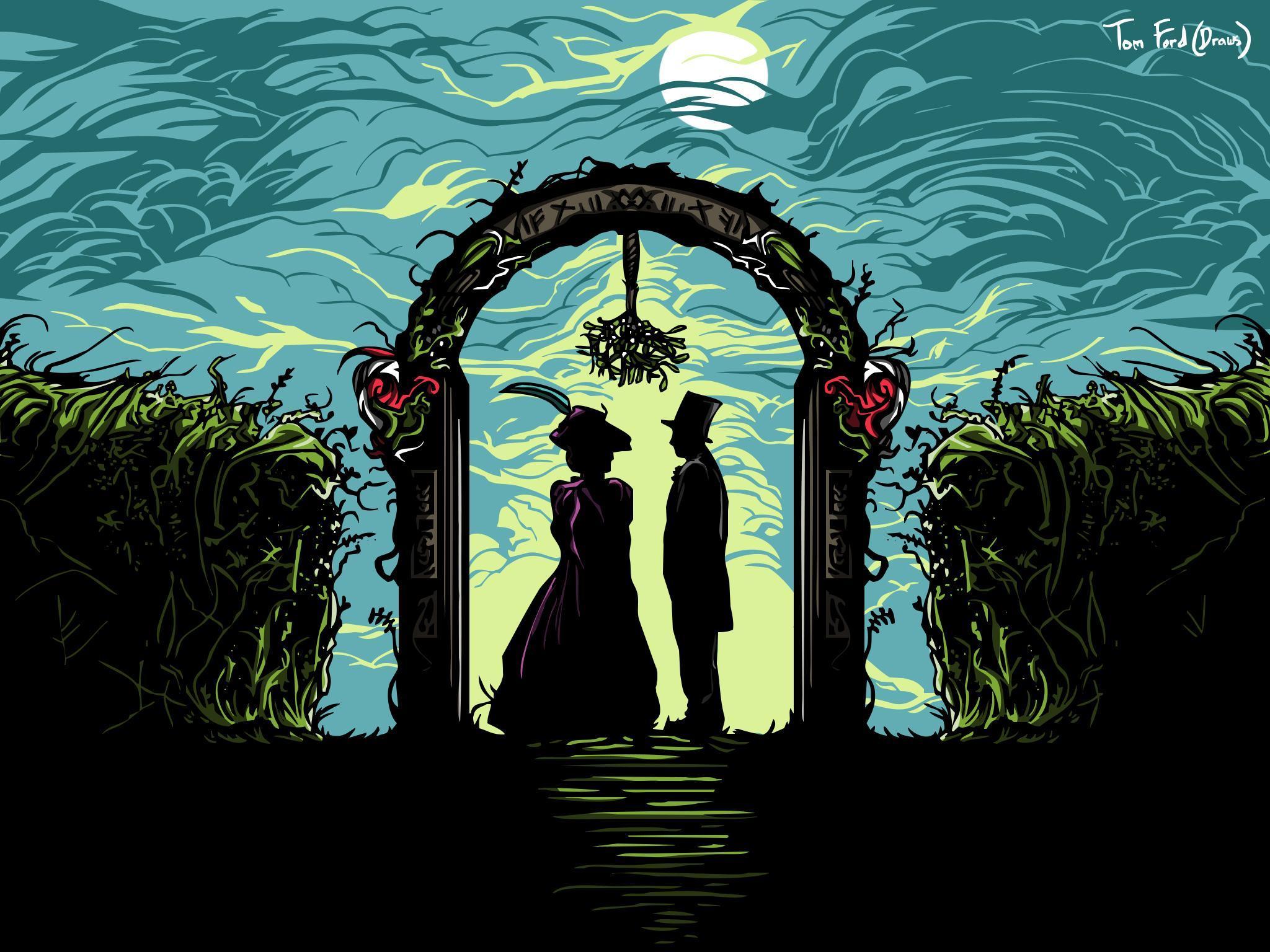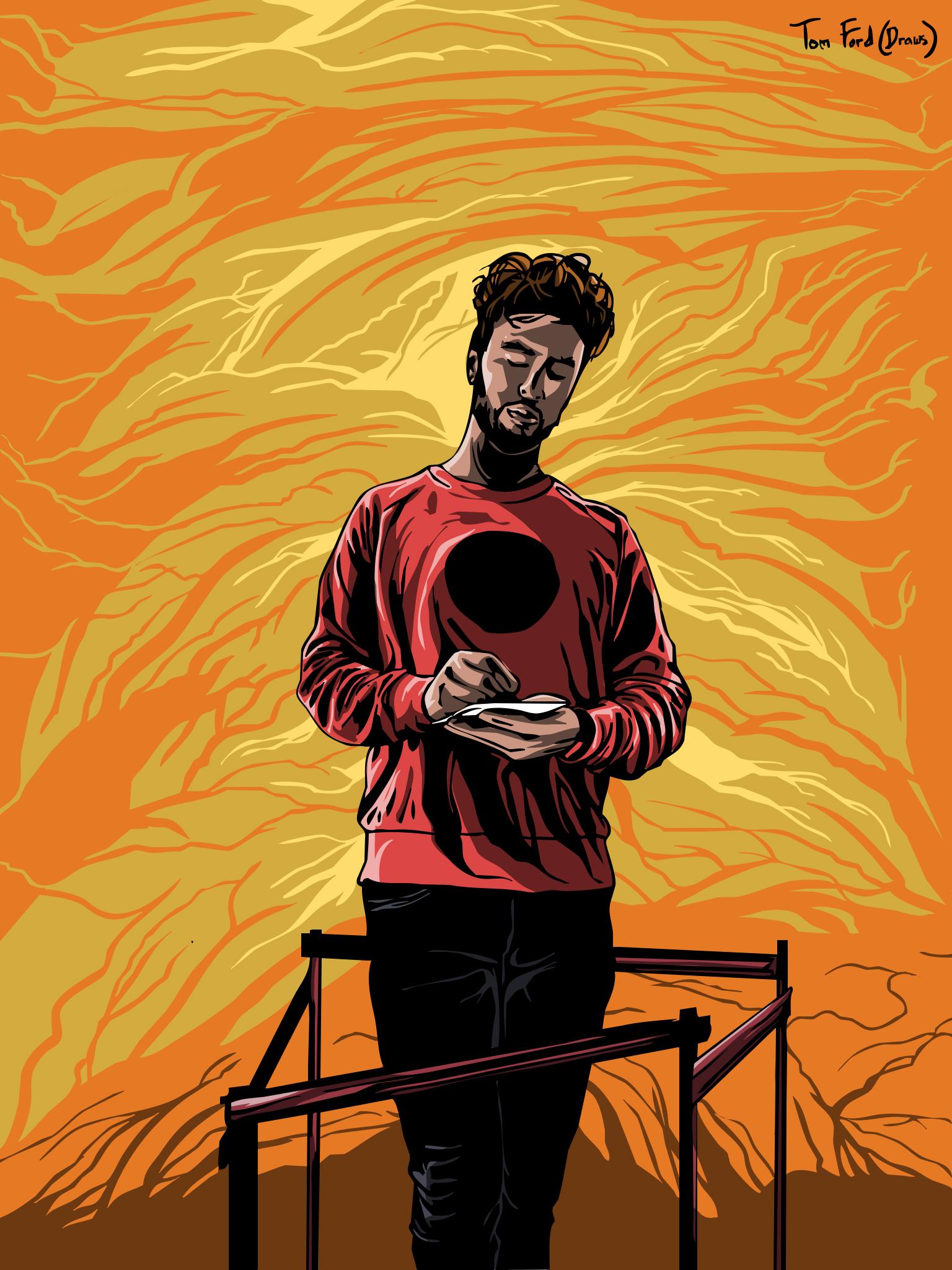Is mistletoe an invitation to sexual harassment?
Continuing her series looking at socially unacceptable questions, Christine Manby ponders a worrisome Christmas tradition


Christmas comes but once a year. Thank goodness. Personally, I’d be perfectly happy if it became a quadrennial event, like a general election or the Winter Olympics. There’s so much to dislike about Christmas: the expense, the enforced jollity, the dubious traditions. Mistletoe, I’m looking at you. Which of us hasn’t experienced that sinking feeling upon realising that all that lies between us and our escape from a terrible party is a doorway festooned with the stuff, beneath which stands someone we’d usually cross the road to avoid? And their cold sores.
It’s been suggested that kissing under the mistletoe began with the Romans, who included the plant in their Saturnalian rituals, but like post-mortem photography and jewellery made from dead people’s hair, the tradition really took off under the Victorians. Notoriously uptight and starved of physical affection, the Victorians embraced with gusto the festive excuse to grapple with someone they fancied. At least, the chaps did. Naturally, it was them who got to do the grappling. Meanwhile, any young woman who refused mistletoe-sanctioned advances was told she could expect a year of bad luck. Specifically, a year without a proposal of marriage (if you can call that bad luck when it means the mistletoe-botherer won’t get to ask for your hand).
Those poor Victorian women didn’t have much autonomy when it came to choosing who to be kissed by at Christmas, but in the #MeToo era, the mistletoe issue is finally being re-examined with the seriousness it deserves and it turns out “Can I kiss you?” is a very difficult question indeed.
Just last year, the Police Service of Northern Ireland tweeted: “If you bump into that special someone under the mistletoe tonight, remember that without consent it is rape #SeasonsGreetings.” The tweet was deleted after complaints that it trivialised sexual assault, but the concern that the mistletoe tradition leads some people to imagine they have carte blanche to touch someone without their express permission is very real.
At New York’s Grand Central Station, a huge bunch of mistletoe – known as the Kissletoe – has long formed a part of the station’s holiday decorations. A sign encouraged travellers passing beneath the bough to “Look Up, Pucker up.” No longer. In 2017, the Kissletoe was taken down, after several people expressed their concerns that it was practically an invitation to sexual harassment.
Employers definitely don’t want to be seen to be encouraging sexual harassment so mistletoe quite rightly no longer has a place at the office party. Likewise excess alcohol. This year American party planners have seen a trend towards office parties taking place over breakfast in an attempt to discourage the sort of unbridled boozing that can result in bad behaviour and unwanted flirtation. That episode of The Office in which Dawn finally kisses Tim after the Christmas party would need a serious rewrite now.
So is the workplace romance completely over? It’s thought that around 10 per cent of us met our future partners at work and many of those flirtations became something more serious at the Christmas party. It would be a shame if falling in love at work was outlawed, especially since a recent survey (to mark season eight of How I Met Your Mother of all things) suggested that those marriages that begin at work are most likely to succeed. Thankfully, despite mistletoe’s #MeToo fall from grace, Finnish dating expert Miia Koponen maintains that work Christmas parties are still a great opportunity to express your interest in that person you’ve been admiring from afar all year.
No one does Christmas quite like the Nordic countries. The Nordics don’t actually have a tradition of kissing under the mistletoe but a Nordic myth might illuminate how the poisonous parasitic plant got its reputation as a symbol of love in the first place. Koponen explains: “The goddess Frigga loved her son Baldur the Beautiful so much that she dedicated herself to making sure that nothing on the earth could harm him. Baldur’s subsequent invincibility meant that the other gods occasionally used him for target practice.
“Alas for Frigga, she forgot about mistletoe and so wicked trickster Loki [that one from The Night Manager...] fashioned a spear from the plant and conned Baldur’s brother Hod into using it to kill him. Frigga’s tears became mistletoe’s white berries and from that day forward Frigga declared that the plant should be a symbol of love.”
Koponen believes that a Nordic approach to dating could help us uptight Brits to be more relaxed and happy in our relationships. She says that the Nordics are more open about sexuality. “There is more equality between genders and fewer rules around dating, relationships and sex. For example, it’s not uncommon for people to engage in sex at early stages of dating and it then turning into a full-blown happy relationship. My aim is to empower British women to get in touch with their own truth and safely express what they want.”

So what if what they want is to let their colleague know that they’re interested? “In the work environment, you need to be very careful,” Koponen counsels. “Much will depend on your position within the company. You should pace yourself when it comes to drinking and always have this question at the forefront of your mind. Whatever you do or say, will you be able to go back to work the next day and look your colleague in the eye?”
She further advises that you don’t ever try to seal the deal under the metaphorical mistletoe. “Take it slowly. Ask if they would be interested in meeting outside work first.”
As a professional matchmaker, Koponen has been responsible for many marriages and quite a few babies but she says that what is most satisfying is when she feels she is able to help change someone’s perception of themselves for the better. “People come in with a long wish list of what they want in a partner. I ask them, is the colour of their hair really more important than kindness? Often people have lists because they feel insecure about themselves and they’re subconsciously putting barriers in the way of getting to know people. Once we’ve untangled that, they can be more open.”
Good advice if meeting someone is on your Christmas list this year.
In the meantime, what should you do if you find yourself in a party situation outside the work environment where the possibility of an unwanted mistletoe kiss might arise?
“Can I kiss you?” your unsuitable suitor asks.
Asking is at least better than an unannounced lunge. Of course, you should be able to answer the question with a firm “no, thanks” and have that refusal accepted and respected. But if you think your refusal might be rebuffed and you just want to get out of the situation quickly without having it escalate, may I suggest this method? I’ve always found that the best approach to an unwanted advent advance is to grimace, point at my bottom lip and mouth: “Actually, I think I’m getting a cold sore.”
Join our commenting forum
Join thought-provoking conversations, follow other Independent readers and see their replies
Comments